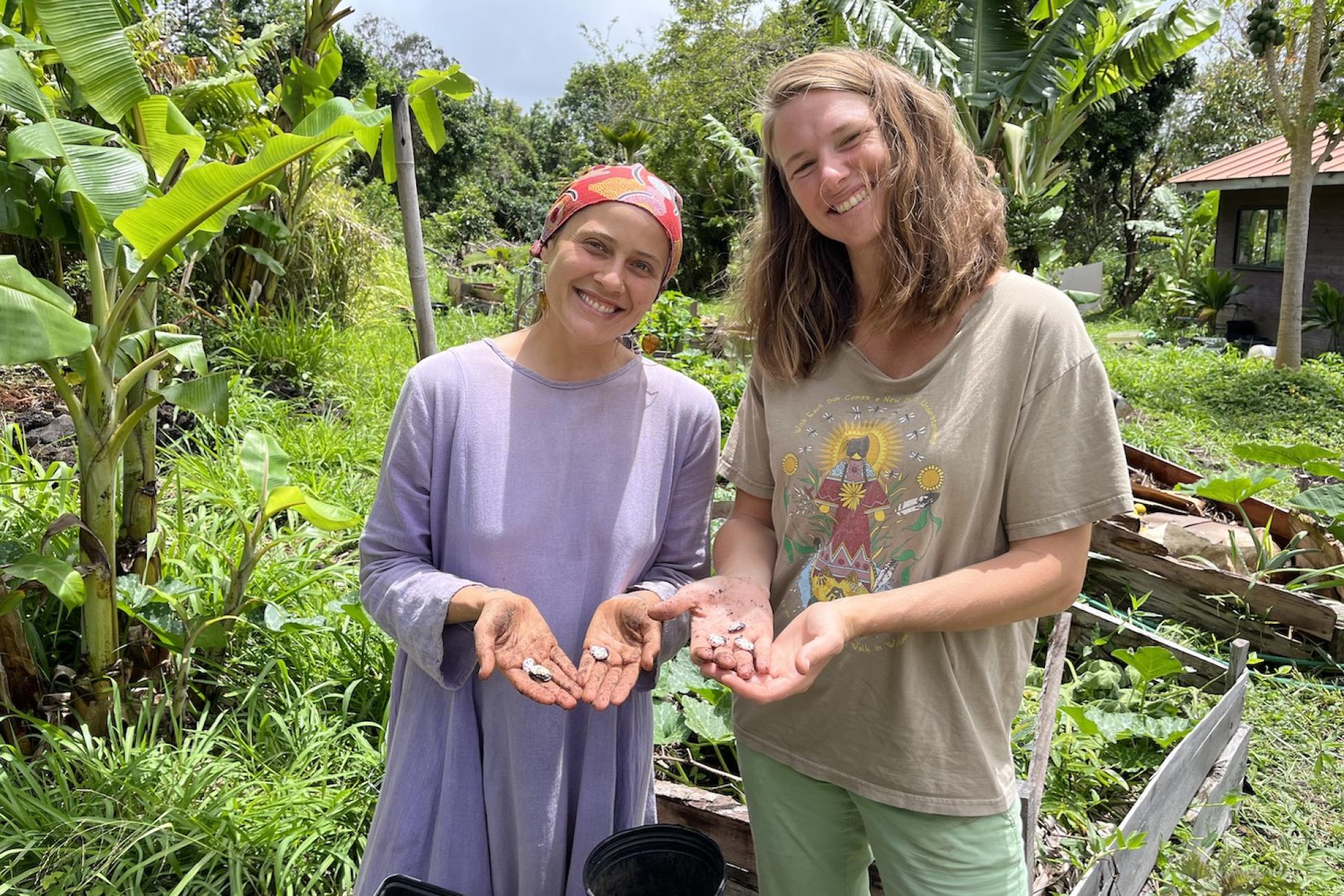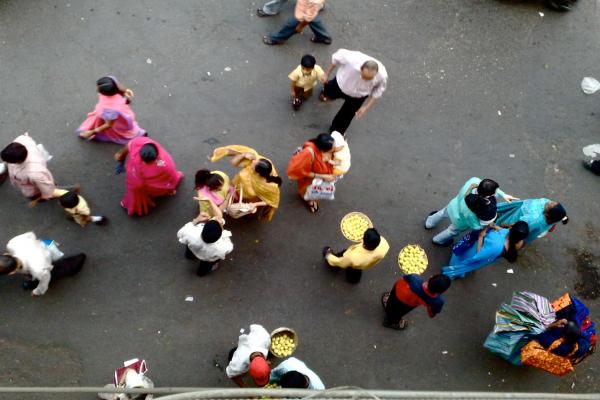When we first got this wild idea—to spend the winter in Hawaii—we swept through the Internet over and over and quickly realized that the polished stay in a tourist-filled area was not an option for us. We couldn’t afford it. But the dream persisted: Hawaii was calling us. And as fate would have it, we found Earthsong—a nature retreat permaculture learning centre on the Big Island. The Earthsong stewards needed volunteers to help them with their permaculture food forest, and we needed a place to stay: a win-win!
Earthsong is only three acres of land. Manageable, right? We thought so, too—but what you realize when you get intimately acquainted with the land is that every inch of it needs care.
Flow with nature
In the lush climate of the Big Island, things grow all year round. The volcanic soil is so rich, a multitude of plants springs up from it, seemingly overnight. Every time it rains, we look around and feel as though the jungle around us has become even lusher. There is always something to harvest, plant, replant, a plant bed to prepare, compost to be moved, manure to be added, and an area to be cleared.
A big factor in the southern tip of the Big Island is the weather. The weather app on your phone might promise a sunny day and yet you wake up to the tapping of the rain. The work you planned the day before now has to be shifted to a more suitable day and you either have to wait the weather out or come up with something else to do. You’d be surprised how much work rain can halt!
Here, you have no choice but to flow with nature's many moods and needs.
The truth about permaculture
Before coming to volunteer at the farm and retreat, I was very excited to learn about the permaculture side of things. Permaculture is this hyped-up thing that the Internet has been buzzing about recently, promising anyone who does it a life of ease and abundance. So, drum roll. . . here comes the truth. (Well, certainly, not the truth, but my impression of it. Let me warn you: I am no farmer. Volunteering at the permaculture farm was my first real experience in a place where things grew.)
My honest impression? Permaculture is a messy business. There are cardboard boxes and scraps of food on the ground, a layer of manure on top, and no neat little bushes planted in a row that most of us are so used to. In permaculture farming, the main idea is working with the land and its natural tendencies, having different cultures enhance each other’s growth. This means you need to understand the land you are working on and know what different plants have to offer and what they need.
Here, you have no choice but to flow with nature's many moods and needs.
But if you are like me—a complete rookie—then you need to start with learning what a carrot looks like when it’s still in the ground, because to pull it out, you need to get through the potatoes, tomatoes, and random greens first. Otherwise, and this might sound silly, but since things grow side by side in a permaculture garden, you might pull out a potato that is not ready to be harvested yet instead of that carrot.
Needless to say, as a volunteer, I often felt pretty inept. The simple tasks like planting some beans caused a gazillion questions on my part: Plant them where? How far from the potatoes? How deep and how many beans to stick into the soil? Do I put manure on top? Is this plant bed ready yet?
How to start your own permaculture garden
The good news is that you don’t have to know it all to start. What I learned while working alongside the Earthsong’s stewards is you can feel your way through trial and error, relying on your intuition and learning from the land as you go. If you are determined to volunteer at a farm or start your own permaculture garden, don’t let the fact that you are a newbie stop you. The satisfaction and joy you will feel when you see something you planted sprouting is worth all the work. And sure, you'll make mistakes, lose harvests and pull that potato out too early—but if you have the patience to stick around, as the Earthsongs’ stewards do, those greens you grew will taste as sweet as you imagined.
During one of the planting sessions, the Earthsong’s steward Elena and my fellow nomad and friend, Charlotte, taught me to place the seeds we were planting in my mouth first. They explained that this way, the seed “learned” about the human who was planting it to provide the necessary nutrients for them. Does it work? Only time will tell! If anything, this little permaculture ritual made the process feel more special.
All in all, after two full months of living and working on the three acres of the permaculture food forest, I got what they call a “reality check.” The truth is, my husband and I have also been contemplating buying a piece of land. We used to think it should be at least five acres. But now that I know how much care land needs, I will likely curb my enthusiasm and start with less. And if one day, I manage to make even a tiny permaculture garden and toss those greens I grew into my salad, I will feel pretty accomplished.
Add this article to your reading list




